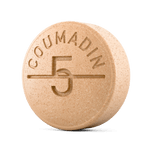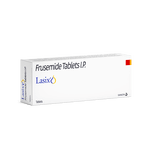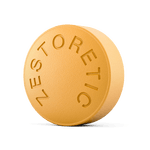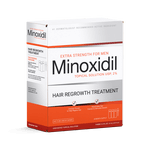Buy Coumadin online without prescription

BUY WARFARIN
General Information.
Description
Coumadin is an anticoagulant which is used to prevent the blood from clotting. You should inform the doctor if you have any bleeding disorder before taking this medicine and you should be aware of the possible side effects of this medicine. Close monitoring of liver and kidney function is necessary while receiving this medicine due to an increase in the risk of bleeding.
Uses of CoumadinDeep Vein Thrombosis.
- Coumadin is used to prevent the blood clot formation in legs and other extremities.
Pulmonary Embolism.
- Coumadin is used in the treatment of Pulmonary embolism (blood clot in the lung) by improving the blood flow in the lungs.
Prophylaxis for Myocardial Infarction.
- Coumadin is used to prevent the formation of clots in vessels that supply blood to the heart. This helps in preventing a heart attack.
Prevention of Thromboembolism in Atrial Fibrillation.
- Coumadin is used to prevent blood clot formation in patients with heart disorders like atrial fibrillation (irregular heartbeat).
Take Coumadin as advised by the doctor. Do not consume larger quantities than prescribed. This medicine is not recommended in patients with gastrointestinal bleeding, head injury, and low blood platelets level. Patients with liver injury/disease are advised to consult the doctor before taking this medicine.
Missed DoseTake the missed dose as soon as you remember. If it is almost the time for your next scheduled dose, then the missed dose should be skipped.
OverdoseSeek emergency medical treatment or contact the doctor in case of an overdose.
How it worksIt prevents the blood from clotting by stopping the action of clotting factors.
Safety Information.
Side effects
The most common possible side effects:
- Abdominal pain
- Blurred vision
- Blood in urine and stools
- Headache
- Dizziness
- Diarrhea
- Skin rash and itching
- Yellow colored eyes or skin
- Muscle or joint pain
- Excessive air or gas in stomach
- Hair loss or thinning of the hair
Allergy
- Coumadin is not recommended for use in patients with a known allergy to Coumadin.
Central nervous system bleeding
- Coumadin is not recommended for use in patients with a head and/or spinal cord injury.
Bleeding disorder
- Coumadin is not recommended for use in patients who have a known history of bleeding disorders or an active bleeding disorder (inability of the blood to clot normally).
Gastrointestinal disorders
- Coumadin is not recommended for use in patients with a known history of gastrointestinal disorders like peptic ulcer disease or gastrointestinal bleeding due to an increase in the risk of further bleeding.
Bleeding
- Coumadin is known to cause severe bleeding. It is not recommended in patients with conditions like gastrointestinal bleeding, head injury, and patients about to undergo a surgery. Any symptoms of blood in the stools, vomiting blood, or blood in the urine should be reported to the doctor on priority. Close monitoring of prothrombin time is necessary while receiving this medicine.
Tissue Necrosis
- Coumadin may cause tissue death within a few days of the treatment. Close monitoring of symptoms like pain and change in skin color is necessary while receiving this medicine. It is advised to stop the treatment if these symptoms appear. An alternate treatment option should be considered based on the clinical condition.
Calciphylaxis
- Coumadin may cause a rare reaction called Calciphylaxis in which calcium is accumulated in small blood vessels of the fat and skin tissues. Close monitoring of symptoms like pain and change in skin color is necessary while receiving this medicine. It is advised to stop the treatment if these symptoms appear. An alternate treatment option should be considered based on the clinical condition.
Pregnancy
- Coumadin is not recommended for use in pregnant women except in life-threatening conditions where the potential benefits outweigh the risks. Discuss all the risks and benefits with your doctor before taking this medicine.
Breastfeeding
- Coumadin is recommended for use in breastfeeding women only if clearly needed. The risks and benefits should be discussed with the doctor before taking this medicine. If the medicine is used, close monitoring of the infant for any undesired effects is necessary.
Coumadin can interact with the following medicines:
- Ethinyl Estradiol
- Aspirin
- Proton pump inhibitors
- Fluoroquinolone antibiotics
Bleeding disorders
- Coumadin is not recommended in patients with a history of bleeding disorders or an active bleeding disorder (inability of the blood to clot normally) due to an increase in the risk of further bleeding. Replacement with a suitable alternative should be done under your doctor's supervision.
Liver Disease
- Coumadin is not recommended in patients with a liver injury/disease due to an increase in the risk of bleeding. Close monitoring of liver function and symptoms like blood in the urine and stools, dizziness, unusual bleeding, etc. is necessary while receiving this medicine.
F.A.Q.
Q: What Coumadin is used for?
A: Coumadin is used to treat or prevent blood clots in veins or arteries, which can reduce the risk of stroke, heart attack, or other serious conditions.
Q: How should I take Coumadin?
A: Take Coumadin as advised by the doctor. Do not consume larger quantities than prescribed. This medicine is not recommended in patients with gastrointestinal bleeding, head injury, and low blood platelets level. Patients with liver injury/disease are advised to consult the doctor before taking this medicine.
Q: What should I do if I miss the dose?
A: Take the missed dose as soon as you remember. If it is almost the time for your next scheduled dose, then the missed dose should be skipped.
See Also.

Lasix
Furosemide
Lasix is a diuretic (water pill) used to treat pediatric and adult patients who suffer from fluid build-ups in the body (edema) caused by conditions such as heart failure, liver disease, and kidney disease. This medication can also be used for the treatment of adult patients with high blood pressure (hypertension). Lasix helps prevent strokes, heart attacks, and kidney problems.
Delivery.
International Registered Mail - 21-30 business days, Price - $16.00, No signature is required upon delivery
EMS (Express Mail Service) - 14-21 business days, Price - $25.00, Signature may be required upon delivery
We will carefully pack your order to make sure it's safe and secure and will dispatch it within 24 hours.
For your privacy we package all parcels to look like regular private mail. We will not disclose the contents of your order. Package dimensions: 9.4x4.3x0.3 inches (24x11x0.7cm).
- International Registered Mail
- 21-30 business days
- No signature is required upon delivery
- 24/7 Customer Support Service
- 21 Years Experience
- 100% Satisfaction Guarantee
- 100% Secure Ordering
-
$16.00
delivery
- EMS (Express Mail Service)
- 14-21 business days
- Signature may be required upon delivery
- 24/7 Customer Support Service
- 21 Years Experience
- 100% Satisfaction Guarantee
- 100% Secure Ordering
-
$25.00
delivery
Contact.
Questions? Comments? Problems? Just drop us a line!

